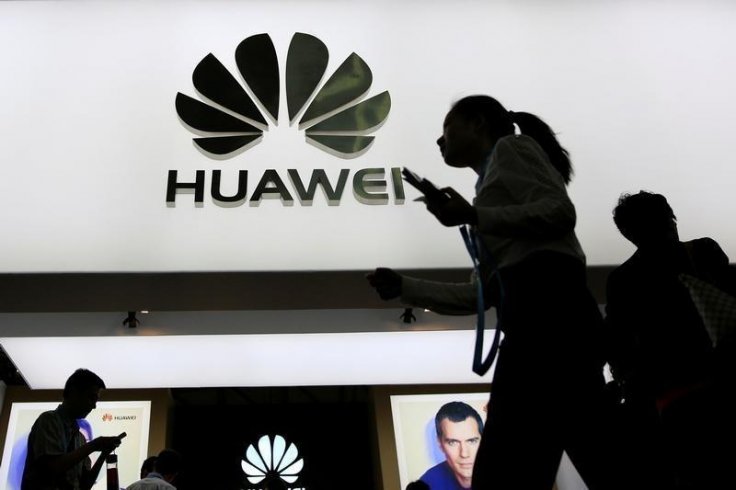The Trump administration hit Chinese telecoms giant Huawei with severe sanctions on Wednesday, adding another incendiary element to the U.S.-China trade dispute just as Treasury Secretary Steven Mnuchin said he would visit China soon for more talks.
The Commerce Department said it was adding Huawei Technologies Co Ltd and 70 affiliates to its "Entity List" - a move that bans the company from acquiring components and technology from U.S. firms without government approval.
Commerce Secretary Wilbur Ross said in a statement that President Donald Trump backed the decision to "prevent American technology from being used by foreign-owned entities in ways that potentially undermine U.S. national security or foreign policy interests."
Trump earlier in the day signed an executive order barring U.S. companies from using telecommunications equipment made by firms deemed to pose a national security risk.
While the order did not specifically name any country or company, U.S. officials have previously labelled Huawei a "threat" and lobbied allies not to use Huawei network equipment in next-generation 5G networks.
Huawei, which denies its products pose a security threat, said it was "ready and willing to engage with the U.S. government and come up with effective measures to ensure product security."
It said restricting Huawei from doing business in the United States would "limit the U.S. to inferior yet more expensive alternatives, leaving the U.S. lagging behind in 5G deployment and eventually harming the interests of U.S. companies and consumers."
Speaking at a U.S. Senate Appropriations subcommittee hearing, Mnuchin characterized two days of high-level talks with Chinese officials in Washington last week as constructive.
"My expectation is that we will go to Beijing at some point in the near future to continue those discussions," he said. "There's still a lot of work to do."
He did not say when his China trip might take place.
Shares in Huawei suppliers in China skidded on the news as markets opened in Asia, with Luxshare Precision Industry down as much as 6.1%. Shares in smaller Chinese Huawei rival ZTE Corp also tumbled.
The Trump administration's rhetoric toward China had cooled in recent days after another round of tit-for-tat tariffs between the world's two largest economies and a selloff on global stock markets.
On Tuesday, Trump denied talks with China had collapsed and sounded an optimistic note about the chance of a deal, saying he had an "extraordinary" relationship with Chinese President Xi Jinping, whom he plans to meet at a G20 summit in Japan next month.
Trump also urged China to buy more U.S. farm products.
Speaking at a U.S. Senate Appropriations subcommittee hearing, Mnuchin characterized two days of high-level talks with Chinese officials in Washington last week as constructive.
"My expectation is that we will go to Beijing at some point in the near future to continue those discussions," he said. "There's still a lot of work to do."
He did not say when his China trip might take place.
Shares in Huawei suppliers in China skidded on the news as markets opened in Asia, with Luxshare Precision Industry down as much as 6.1%. Shares in smaller Chinese Huawei rival ZTE Corp also tumbled.
The Trump administration's rhetoric toward China had cooled in recent days after another round of tit-for-tat tariffs between the world's two largest economies and a selloff on global stock markets.
On Tuesday, Trump denied talks with China had collapsed and sounded an optimistic note about the chance of a deal, saying he had an "extraordinary" relationship with Chinese President Xi Jinping, whom he plans to meet at a G20 summit in Japan next month.
Trump also urged China to buy more U.S. farm products.
'ADVERSE CONSEQUENCES'

As negotiations toward resolving the U.S.-China dispute stalled last week, the United States ratcheted up the pressure by increasing tariffs on a list of $200 billion worth of Chinese imports to 25% from 10%.
China retaliated on Monday with higher tariffs on a revised list of $60 billion worth of U.S. products.
Trump could launch 25% tariffs on another $300 billion worth of Chinese goods when he meets Xi next month. He has not ruled out imposing punitive levies on all of China's imports to the United States.
Another escalation could disrupt global supply lines and damage a slowing world economy.
Beijing is vowing not to succumb to U.S. pressure. But on Wednesday, China reported surprisingly weaker growth in its retail sales and industrial output in April.
Data out of the United States showed U.S. retail sales fell in April as households cut back on purchases of motor vehicles and other goods, pointing to a slowdown in economic growth after a boost from exports and inventories in the first quarter. Other data showed a drop in U.S. industrial production.
The U.S. Congress is uneasy about the potential consequences of tariffs on the economy.
House of Representatives Majority Leader Steny Hoyer said U.S. consumers were in the "same boat as farmers" and would end up having to bear the burden of the tariffs. Consumer spending accounts for more than two-thirds of U.S. economic activity.








